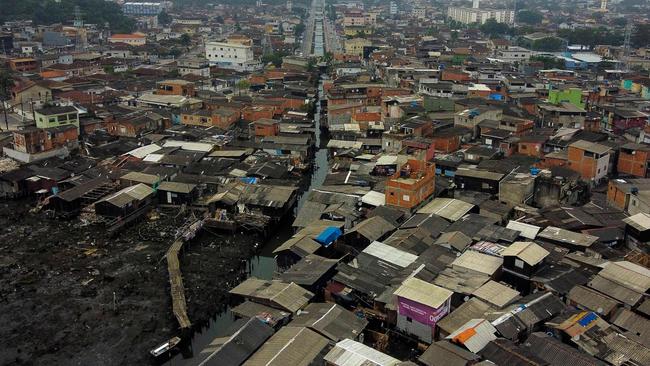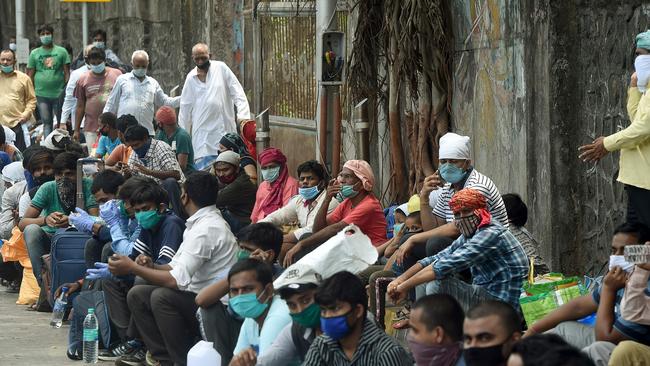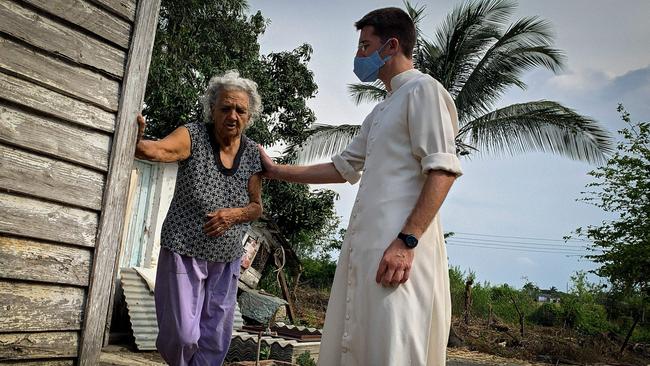World’s poor suffer as rich work from home
Global lockdowns have wrought destruction for millions of people in developing countries.

It’s a more niche genre in Africa, South Asia and parts of South America, where the lives of hundreds of millions of people have been thrown into chaos by selfishly hysterical responses of Western countries to Covid-19.
“The wholesale abandonment of the global poor by policymakers, opinion formers in the liberal press and the global rich in general is one of the most repugnant features of the international response to the pandemic,” says Toby Green, a prize-winning author and professor of African history at King’s College London.
His new book, The Covid Consensus, is a meticulously referenced, shocking catalogue of Western hypocrisy and the destruction wrought by global lockdowns on the poorest nations – “worse than the threat of Covid-19 by several orders of magnitude”.
In February last year the World Health Organisation, in a regrettable volte-face from its 2019 advice against lockdowns “under any circumstances”, insisted all nations implement them regardless of their political or socio-economic state.
“The collateral damage has been so appalling that the lockdowns trialled in 2020 should never again be implemented,” Green says, taking aim at the “ultra nationalist” outlooks of nations such as Australia and New Zealand, which locked down “without caring what the global consequences might be”.
All up, the consequences have been grim. Last year an extra 71 million people were pushed into extreme poverty, living on less than $US1.90 a day, according to the World Bank. The number of people “marching towards starvation” jumped by 135 million, David Beasley, head of the World Food Program, said in December.
Remittances from workers in the rich countries, which make up around half of private income in poor countries, and tourism, which makes up more than 20 per cent of Gambia’s income, for instance, collapsed.
African lockdowns wrought particular havoc on their mainly cash economies dependent on physical interaction, where about 80 per cent of jobs are informal.
About 70 per cent of households lost income and half cut back meals, according to a University of California study of Africa, Asia and Latin America, where money printing isn’t practical to finance wage subsidies. No wonder tens of thousands of West Africans tried to escape to Spain on boats, where hundreds, perhaps thousands, drowned at sea.
“Women and children first” took on a cruel twist in the global Covid response. An extra nine million children face child labour by the end of next year, according to the International Labour Organisation in a report released last month, thanks to the economic collapse in the developing world.
An extra 10,000 a month were already dying by July last year, according to the UN, and the cessation of vaccination programs for measles and polio in many developing countries – to meet social distancing rules – will ensure many more die in the future.
The closure of schools has been bad enough in rich countries, but in Africa, where the internet is slow or absent, it means no schooling at all for up to a year.

Concerns about lockdown-induced domestic violence were such that some Mexican states banned alcohol. African police forces beat and even killed people who were breaking the “health advice”.
Green’s book is a depressing tale of hubris, mindless groupthink and cynical power grabs by bureaucrats and governments, taking advantage of a “health crisis”. It’s not even clear lockdowns saved any lives in poor countries.
Peru, for instance, which imposed perhaps the toughest in the world, experienced an extra 110,00 deaths last year, 95 per cent more than in 2019. This dwarfed Covid-19 deaths in Brazil, where health measures were haphazard at best.
The idea Covid-19, rather than “stupid and incomprehensible” policies, could have caused all this devastation is farcical.
In Africa, where 400,000 children aged under five die each year from malaria, and most can only dream of making an age where Covid-19 would matter, the South African variant would be the least of concerns.
Tanzania, about the only African country that bucked Western advice to lock down, has had 21 Covid-19 deaths so far out of a population of 58 million. Even if the “true Covid toll” is 10 times that, it’s negligible in a continent where nine million people die every year. If only more had stood up to the WHO and their former colonial masters.

“Perhaps lockdowns could have been a great policy had the world consisted of wealthy people aged 35 who had formed their main affective connections in life and could easily work remotely,” Green says.
Unfortunately for Africa and elsewhere, it’s this privileged sliver of the world that calls the shots.
If only it understood that the popular, asinine slogan “lives versus the economy” ignores that the functioning economy is critical not only to livelihoods but also lives for many poor people. Here lies the first great political puzzle of our time.
The left, once internationalist, a champion of the world’s poor, the young, workers and women, has insisted on policies that have supercharged inequality and have foisted shocking burdens on those groups, all in a quest to extend the lives of elderly rich people – most of whom, as even British epidemiologist Neil Ferguson admitted last year, might have died in the next year anyway.
The second puzzle is how lockdown proponents advocate with missionary zeal, casting critics as uncaring in a simplistic moral pantomime. The data is starting to roll in, and whatever the reckoning for rich nations, their ideas have been an epic catastrophe for the world’s poor.




As anyone on social media knows, lockdowns are a boon for work from home selfies, where white-collar workers take pictures with their laptops at the beach, with pets or having a glass of wine on the balcony, pinned with “You’ve got this (insert city in lockdown)! #stayhome #savelives”.